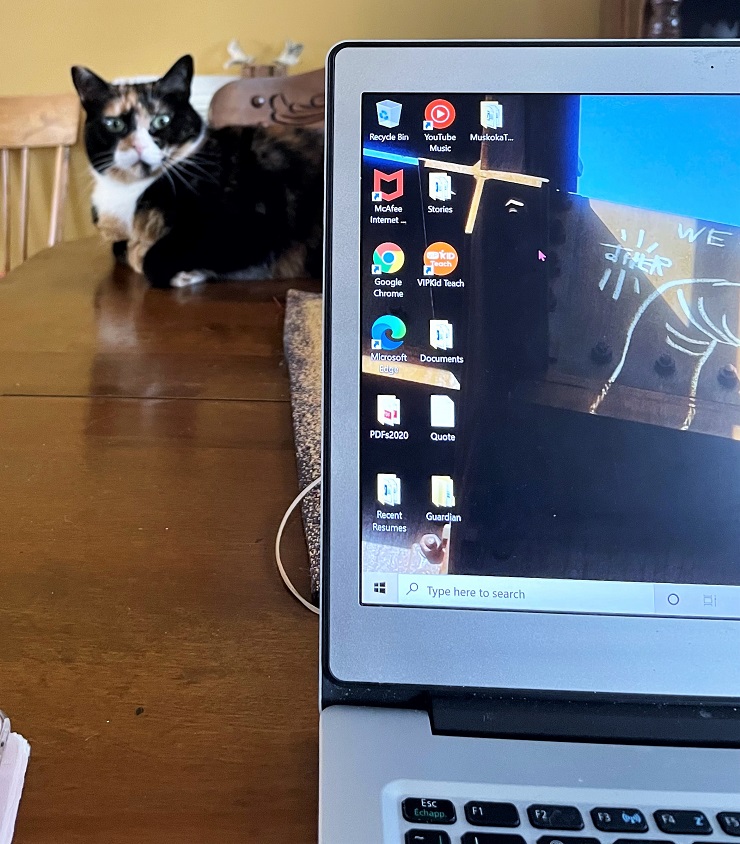WAKE UP AND SMELL THE TIMMIES, MR. AICHISON, MINIMUM WAGE IS NOT LIVING WAGE
TARA COLLUM | Contributing columnist
The MP for Parry Sound-Muskoka recently spoke out about the labour shortage and seemed to make a link between local franchises like Tim Hortons being unable to attract workers and the government’s pandemic benefits.
Scott Aitchison, the Conservative’s labour critic, doesn’t seem to believe Canadians can be trusted to receive benefits directly; and instead funds should go toward businesses.
Ontario Labour Minister Monte McNaughton has a different take on the situation. In a recent interview he stated: “Look, if you’re a business out there and you want to attract a talented workforce, you need to pay them well.”
Pay is not the only issue in a labour shortage. When workers can afford to be more choosey, they will naturally gravitate toward work that will help them make the most of the one life they have — jobs with health and dental benefits, advancement opportunities and a pension.
Or if possible, even something moderately fulfilling.
That social assistance makes people lazy has been a persistent myth since the Industrial Revolution. It’s a false dichotomy to assume that if there are government benefits available people will take advantage of them and not work.
Why are businesses deemed better stewards of government money than citizens? Loblaws, despite billions of dollars in profit, has clawed back the hourly pandemic pay bump for retail workers before the pandemic is over.
Many Canadians are not even eligible for government pandemic funds, or “COVID pay.” Students or part-time workers for example, can only qualify if they met a certain income threshold before March 2020.
Not to pick on Hortons, but there are many reasons why someone wouldn’t want to work at one during a world-wide pandemic, even with the minimum wage surging to $15 an hour. For example, many franchises recently eliminated employee benefits.
If you are a parent, and schools have shifted to online learning, would it be worth it to gas the car, pay for child care and risk getting your family sick to work shifts doling out Timmies?
If one partner is working, it may make sense for many families to try to live on one paycheque.
Even in the best of times retail and food service, while good jobs, aren’t for everyone. I worked at a Hortons for a short time, after craving the comfort of home after graduating from university.
YMCA yoga-fit classes helped me deal with the anxiety of facing sometimes hostile customers and the self-judgement that I’d wasted my university degree. Every week our instructor Robin would help us relax from head to toe and leave all our stress on the floor.
I would try to let go of the smell of coffee that I discovered I hated. And the way my feet smelled after standing on them all day, in my ill-fitting beige uniform, sun visor and hairnet. And how cold I always was because the pricey Tim Hortons sweater wasn’t included as part of the free uniform.
I was grateful to have a job, and the ability to save up enough money to mostly pay for my own wedding, but it was only possible thanks to my parents, for letting me live at home rent-free.
The new minimum wage may seem high, but it is no longer a living wage in the time it takes to finally get there.
According to the Ontario Living Wage Network, the living wage needed to live in Muskoka for November 2021 was $18.55 an hour; while the living wage for Toronto was $22.08.
In all of Ontario, there is no region where a person’s basic needs can be met on $15 an hour. By the OLW Network’s calculations, only Ste. St. Marie and Thunder Bay residents can scrape by on just more than $16 dollars an hour.
One thing this pandemic has given us is workers who finally have an advantage. We no longer have to face stiff competition for every job opening. And they have the benefit of having more employment options instead of settling for whatever they can find.
If businesses can’t stay competitive in changing environments and attract a strong work force, that’s their problem to solve.



January 8, 2022 @ 9:59 pm
Absolutely agree with you, Tara. Let’s hope better wages and working conditions are one positive result of this pandemic.
January 9, 2022 @ 8:12 am
Thank you for this article Tara. A great headline, it drew me to read it. It was informative and timely. I hope business owners take time to read it. Life is about people not profits.
January 9, 2022 @ 1:18 pm
Thank you for making this important point, Tara. The people who who complain are never the same ones who actually have to live on the CERB or to survive on a minimum wage job. I challenge MP Aitchison (and anyone else who complains that people ‘don’t want to work’) to 1) live on a minimum wage income for one month and 2) to actually do a minimum wage job. Or they can ‘sit at home’ and collect the CERB, which is less. I’d be interested to find out if, based on their own experience, they still say that the government is overly-generous and a minimum wage existence is a reasonable means of existence.
January 9, 2022 @ 2:29 pm
Thank you! You are right on the money.